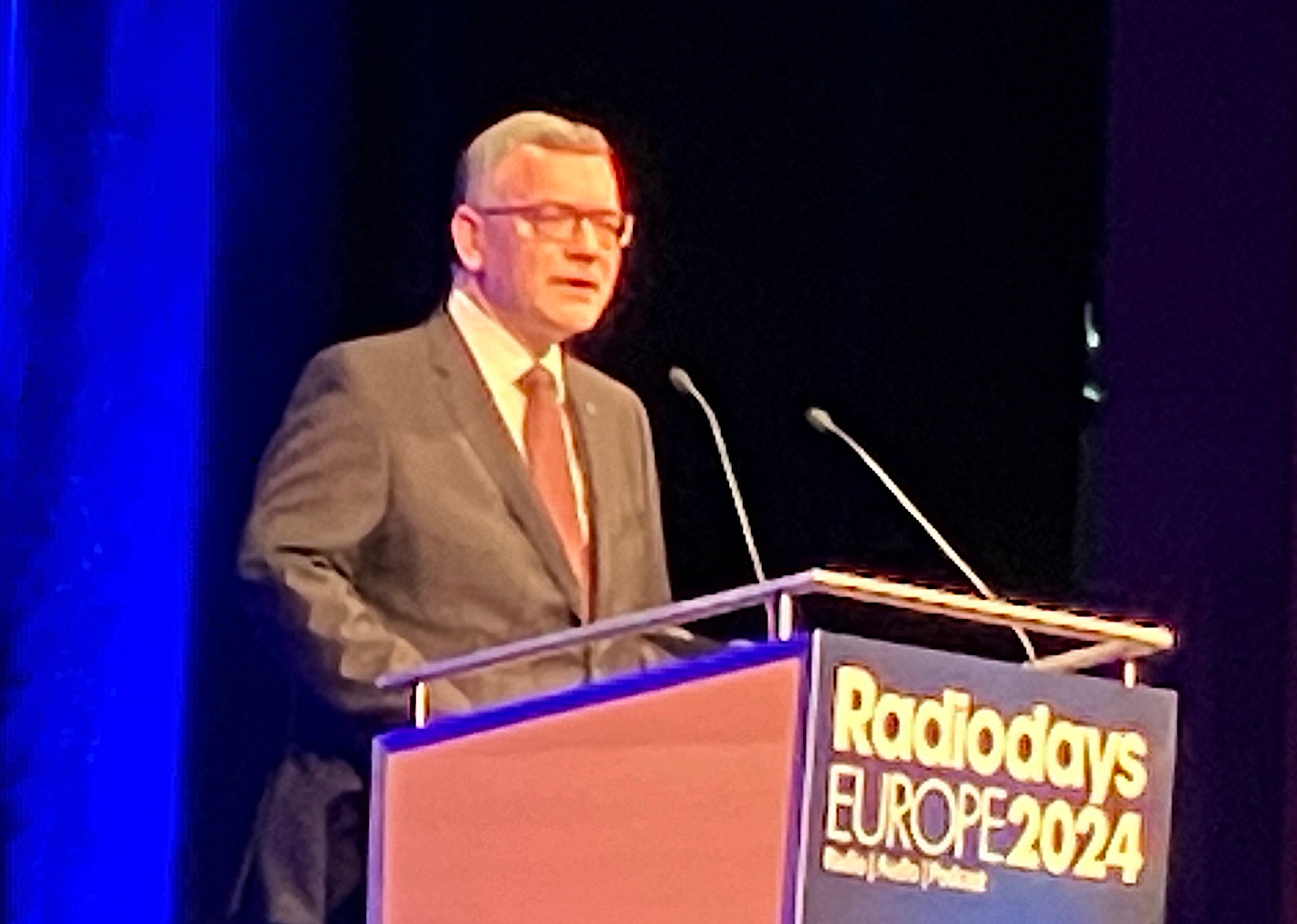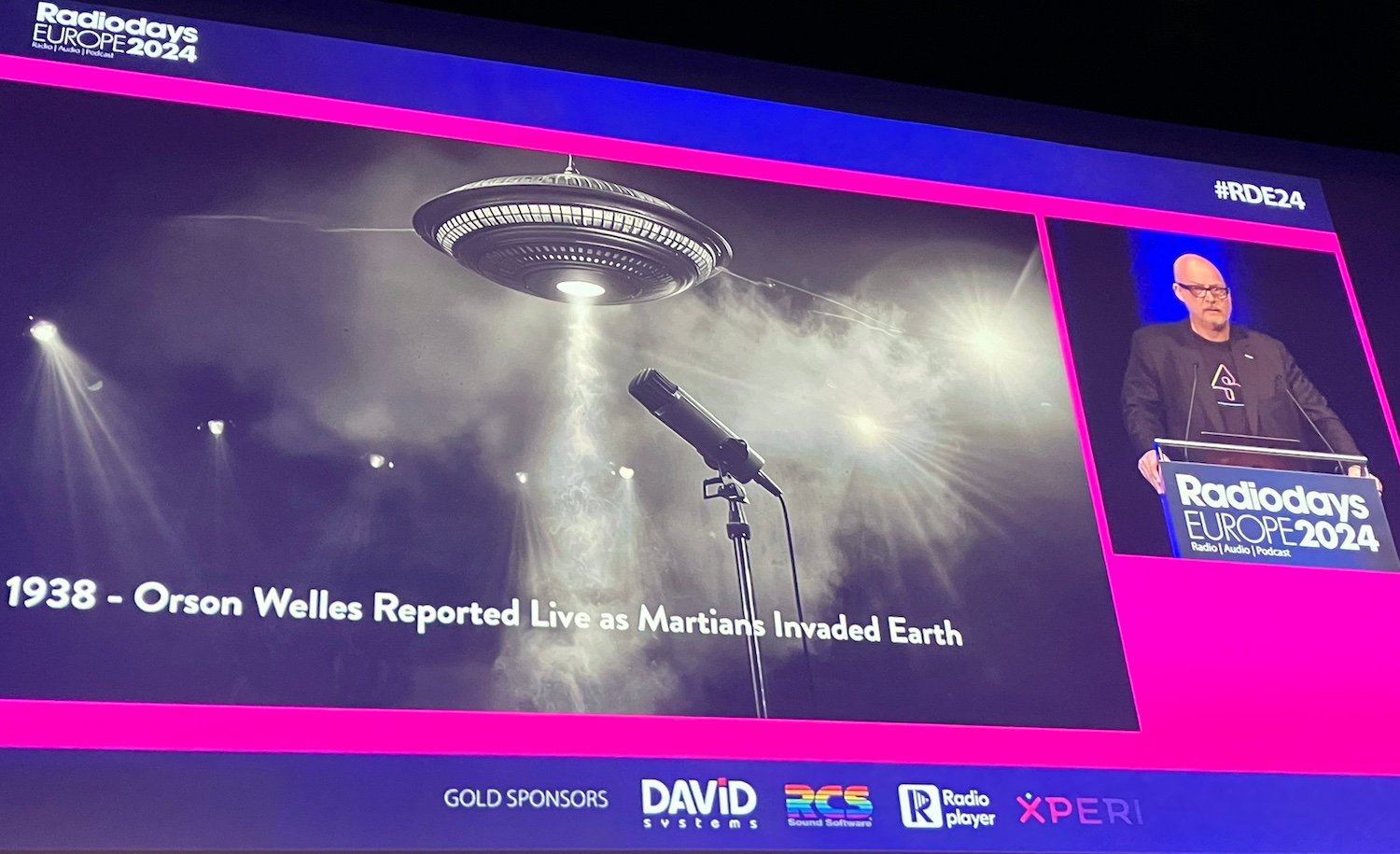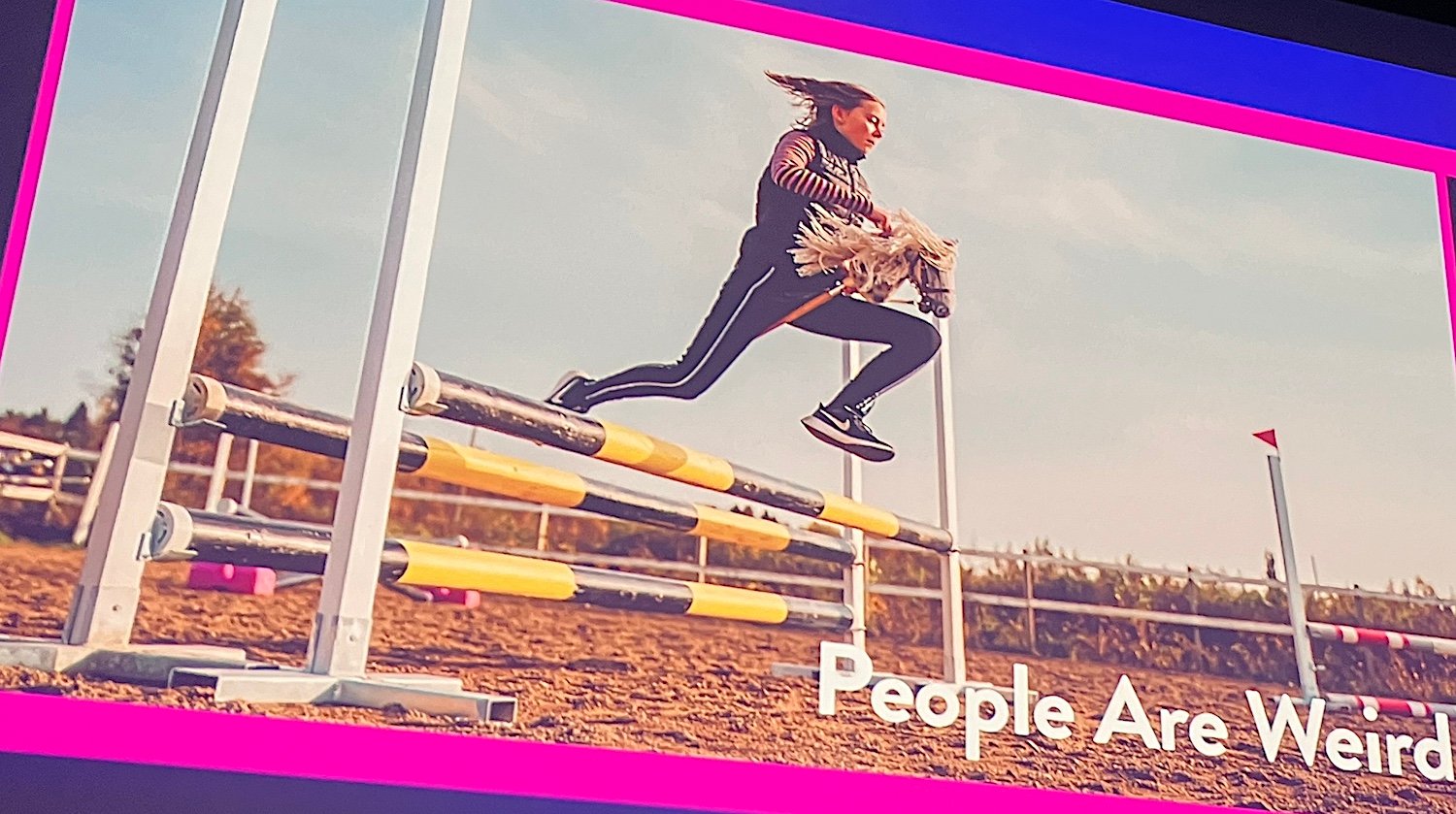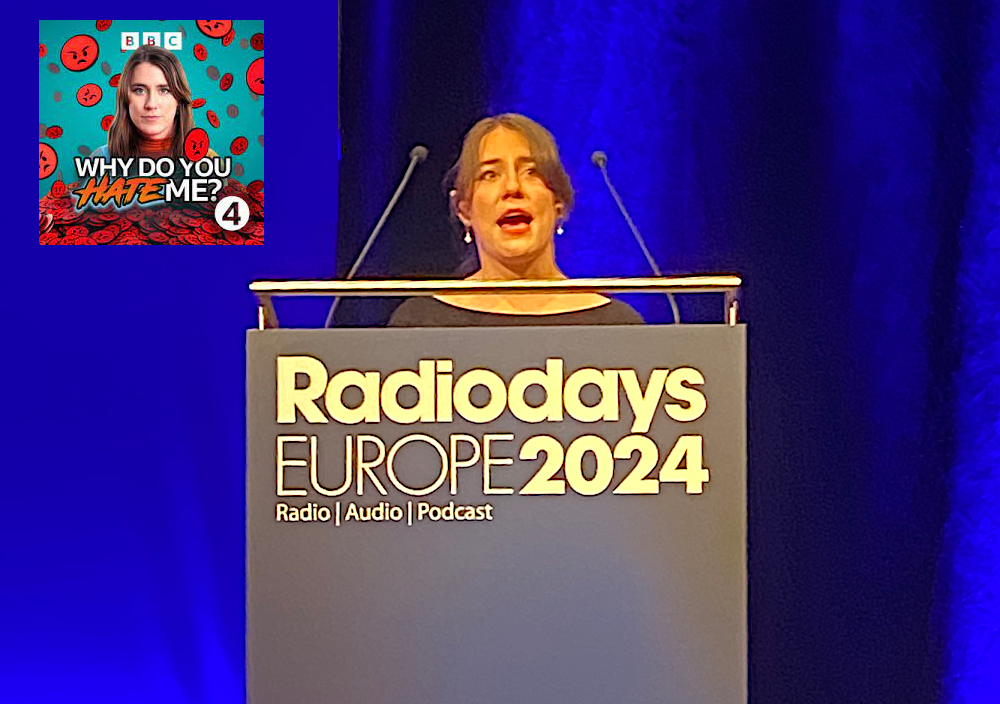How much fake news do we face these days?
The BBC’s first Disinformation and Social Media Correspondent, Mariana Spring gave a brief glimpse into the scale of fake news, not just on video, but also in audio.
“Fact checking alone is no longer enough to battle all the fakes that are now available online. The technology is available to everyone…social media companies are hard to hold to account,” she said, previewing a longer session she will present later in the conference called ‘My Life in Conspiracy Land.’
“One thing I am very concerned about is AI generated audio. There are a lot of purported secret recordings, especially in countries facing elections in the next year.”
She urged credible radio businesses to be on the front foot in interrogating this kind of fake audio. Spring is doing that in her podcast called ‘Why Do You Hate Me.’
She says “take the audience with you on your journey to uncover these things, make it like an investigative podcast and explain why it matters to your listeners… Use the techniques of good journalism, work with a good team, go and see all the people you will cover and interview them properly face to face. Try to find out how people with conspiracy theories got there, what social media did they use, how were they drawn into the conspiracy.”
“A level of hate higher than in the past, seems quite common now. When it happens to me, now I call it out and use it as a way to tell the audience how things are happening in these times.”
Today marks the first full day of Radiodays Europe, with presentations across four simultaneous tracks for an audience of more than 1500 people from about 65 countries. Spring was one of the key speakers on the opening session.
“Interest in radio and podcasts is very strong and the large audience here at Radiodays reflects that,” said CEO Peter Niegel opening the conference. The theme is ‘shaping the radio landscape.’
“Radio is holding its reach, and new forms of audio such as podcasting are expanding our audience,” said Niegel.
Katja Wildermuth, the Director-General or the regulator Bayerischer Rundfunk welcomed delegates to Bavaria, a region of Germany where there are 30 commercial radio companies operating, plus the public broadcasters.
“Technical innovation and AI are part of our future, but, as well as technology, the magic of radio is still storytelling and the creation of relationships in a trustworthy credible way. This is more important than ever at this time,” said Wildermuth.
“Radio has a future when the right people and the right ideas converge,” according to Germany’s Media Minister Florian Herrmann (pictured below).

The Bavarian state government has sponsored the conference to bring delegates to Bavaria, where “radio is fun, and is also important for democracy. Radio creates people who are participants in an open democratic society, and it is also good business.”
Lars Bastholm, the Founder & Principal of Bastholm Creative Consulting introduced one of the main themes of this year’s conference, Artificial Intelligence.
With a short history of radio, the universe and everything, he resurrected Orsen Wells for a conversation and created a brand new world to promote the magic of radio… all through AI.

“We have an opportunity to enter a new age of radio, we are entering a golden age of AI radio which will enhance what we already do.
“The ability to create anything now is daunting, but also presents opportunities. AI can be done by everyone and can transcend language through translation tools… you can reach a really broad audience.”
Ask for the AI toolbox and learn how to use it, get to know what can be done. “You won’t be replaced by AI you will be replaced by someone who knows how to use AI.”
When using AI, Bastholm urges people to ask themselves, “what do we have that is unique to humans?” Some of the answers to that are:
- People are weird, computers will never be as odd as humans.
- Humans think sideways, not just lateral thinking. Computers can’t think sideways.
- If we make mistakes that reveal that we are human, celebrate those mistakes and tell the audience about them, rather than being driven by the perfection that machines strive for.
- Celebrate our humanity!
This slide of the hobby horse steeple chase, is an example of how weird people are. When he asked an AI engine to create a horse riding competition using hobby horses, the machine did not know what to do and produced no result.


